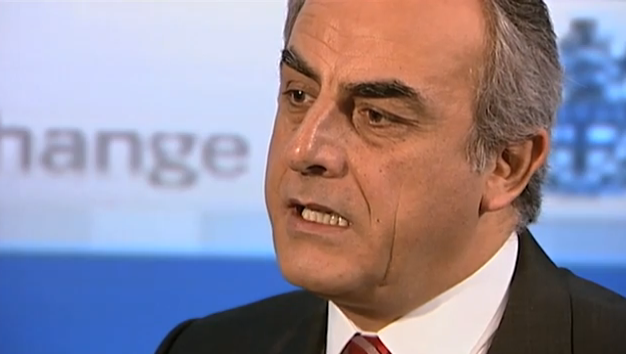Cartica Management has filed a Complaint in the United States District Court of the Southern District of New York against the following defendants: CorpBanca S.A., its controlling shareholder, Álvaro Saieh, Saieh’s holding companies (CorpGroup), and CorpBanca’s directors, its Chief Executive Officer, and its Chief Financial Officer.
The Complaint asks the Court to declare the Defendants in violation of anti-fraud provisions and disclosure requirements of the United States Securities Exchange Act of 1934, and to enjoin the closing of the Banco Itaú Chile–CorpBanca combination. Cartica Management, LLC, through separate managed investment funds, collectively beneficially owns approximately 3.2% of the outstanding common shares of CorpBanca (including shares represented by American Depository Receipts).
The Complaint alleges that Saieh and CorpGroup, together with CorpBanca, its Directors, CEO and CFO, committed fraud in the orchestration and execution of an agreement to sell CorpBanca to Itaú Unibanco (the “Itaú Transaction”). The Complaint specifically alleges that Saieh used fraud to extract a control share premium for his majority stake in CorpBanca as well as numerous other short- and long-term benefits that accrue to him, his cronies and private companies to the detriment of all minority shareholders. As part of this fraudulent scheme, Saieh and the other Defendants also failed to file any disclosures regarding the sale that are required of major company investors effecting a change in control.
Saieh and CorpBanca made public disclosures in November 2013, December 2013, and January 2014 that they were receiving and evaluating offers to enter a corporate transaction to benefit all shareholders equally. Defendants also assured investors that they were seeking a deal that would secure maximum value for shareholders and would benefit all shareholders equally. In truth, instead of acting consistent with their disclosures, Defendants were actively negotiating, designing, and securing a transaction that gives control of CorpBanca to Itaú Unibanco in exchange for a rich array of valuable short- and long-term benefits that accrue singularly to Saieh and to no other shareholders.
The Complaint articulates a clear motive for Defendants’ fraud—namely, the financial bailout of Saieh and CorpGroup. Saieh and CorpGroup control several companies, including the publicly held bank, CorpBanca, and privately held supermarket chain, SMU. Throughout the past year, Saieh and CorpGroup suffered significant losses in connection with SMU, which itself lost almost $1 billion. SMU’s financial failures in turn tainted publicly held CorpBanca, driving its credit ratings and stock price downwards. In response to CorpGroup’s and SMU’s financial spiral, Saieh, along with the other Defendants, devised Defendants’ fraudulent scheme to recoup Saieh’s losses and refill CorpGroup’s coffers via the sale of CorpBanca.
After entering the Itaú Transaction, Saieh and the other Defendants compounded their fraud through further deliberate and coordinated misstatements, omissions, and delayed and incomplete disclosures.
The agreements with Itaú make clear that Saieh—through a parade of inequitable special benefits accruing only to Saieh and the other Defendants—effectively extracted the control share premium he promised shareholders he would not pursue, and accomplished a bailout for Saieh, CorpGroup, and SMU. Saieh used the Itaú Transaction to give himself a windfall that includes, among other benefits: hundreds of millions of dollars in cash from a sale of CorpBanca Colombia shares; a below-market-rate loan of almost one billion dollars; call options that bear no downside risk but provide huge potential for profit over the next five years; effective guaranteed dividends for CorpGroup alone over the next eight years that come at the expense of the post-merger bank’s growth and the restriction of its capital structure; tag-along, first offer, and share liquidity rights; a right to share in future Itaú Unibanco business opportunities in certain Latin American countries; and a prestigious job for his son as Chairman of the post-merger bank.
Based on these actions, the Complaint alleges that Saieh, CorpGroup, CorpBanca, and its Directors, CEO, and CFO violated Section 10(b) of the Exchange Act and Rule 10b-5 thereunder by disseminating or approving materially false and misleading statements and by employing devices, schemes, and artifices to defraud CorpBanca shareholders in connection with effecting the Itaú transaction. It further alleges that Saieh, his holding companies, and the Directors, CEO, and CFO violated the antifraud provisions of Section 20(a) of the Exchange Act. The Complaint also alleges that Saieh and CorpGroup violated Section 13(d) of the Exchange Act.
The lawsuit asks the court to enjoin the Itaú transaction in order to (i) prohibit Defendants from benefiting from the fruits of their deception, (ii) ensure the Bank’s capital is not artificially restricted for years to come by Saieh’s preferential deal terms, and (iii) shift the great, if unquantifiable, value of the special benefits Saieh anticipated from the deal back to all CorpBanca shareholders on an equal basis—as Defendants originally led minority shareholders to believe would occur.
“This attempt to rob minority shareholders has gone on long enough,” said Cartica’s Managing Director, Teresa Barger. “We have brought the fraudulent acts of Álvaro Saieh, CorpGroup and CorpBanca before a Federal court because they, along with Itaú, have so far failed to take advantage of the opportunity to voluntarily call off this disastrous deal and replace it with a transaction that benefits all shareholders equally. Today’s action, however, is simply the first of many we intend to take to defend the rights of minority shareholders, including holding Directors of CorpBanca liable for the harm they have caused and will cause the minority shareholders.”


 By Fórmate a Fondo
By Fórmate a Fondo